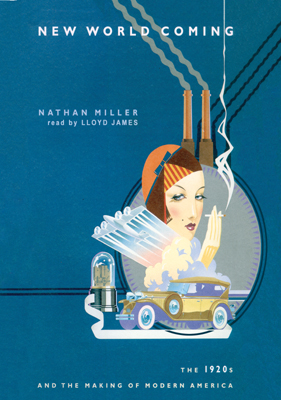Jazz, bootleggers, flappers, talkies, Model T Fords, Lindbergh's history-making flight over the Atlantic—the 1920s was also the decade of the hard-won vote for women, racial injustice, censorship, social conflict, and the birth of organized crime. With scandal and crime the lifeblood of the tabloids, it was the time when the culture of celebrity and sensationalism took root and journalism became popular entertainment. Nathan Miller has penned the ultimate introduction to the era.
Chronicling what he sees as the most significant decade of the past century, the author vividly portrays the 1920s, focusing on the men and women who shaped this extraordinary time, including three of America's most conservative presidents and H. L. Mencken. Written in extraordinarily accessible—and frequently witty—prose, New World Coming is destined to become the book we all turn to in order to recall one of the most beloved eras in American history.


